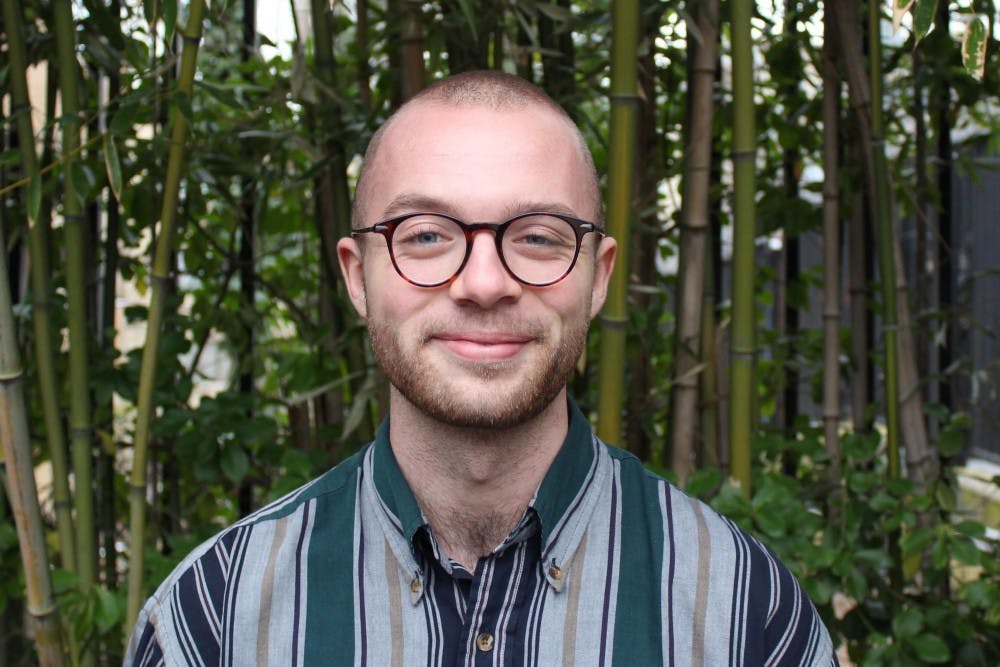There are many things about American University that I’m glad aren’t replicated at my home school, The University at Edinburgh. The propensity of some students to hand out business cards within three minutes of meeting them. The emphasis that the University puts on creating a personal brand. The belief that starting a sentence with “Going off of what he/she/they said…” somehow makes your point relevant. (It doesn’t. Stop it.)
That being said, there are certainly ways in which the University of Edinburgh and other British institutions could improve by taking a page out of AU’s book. The recent launch of American University’s Plan for Inclusive Excellence -- aimed at “placing diversity, equity, and inclusion at the core of educational excellence and institutional mission” -- made me consider in greater detail how my own institution tackles discrimination. Whatever shortcomings they may have, the actions of American University serve as a useful template for British universities looking to provide more support for marginalized members of its student body.
Now, it’s important at this stage to clarify precisely what I mean. I am certainly not saying that there isn’t more to be done at AU; the consensus view amongst students that I’ve spoken to seems to be that, although the University is clearly moving in the right direction on these issues, far more remains to be done. Moreover, I’m not qualified to talk about the experiences of others in a country I barely know at a university I’ve only just become accustomed to. All I can do is compare the actions of American University to those of Edinburgh and, once you do that, the differing levels of institutional dedication to tackling discrimination become quite clear.
This can be demonstrated by the retelling of a recent incident at Edinburgh.
Student A – a white male – obtained screenshots of comments that Student B – a black female – had made on a Facebook page created for black and minority ethnic (BME) students at Edinburgh. On that page, the student once discussed abuse of Serena Williams. After announcing his intention to both privately and publicly (to an online following of around 17,000) unveil her comments, Student B complained to the university about harassment.
A substantial number of media organizations, ranging from some of the most prominent British newspapers to Fox News and RT, did run a story on Student B. But it didn’t concern her comments on the abuse of Serena Williams. Instead, her name was widely shared as the source of a complaint against Student A on the grounds of Islamophobia. His only crime? Supposedly mocking ISIS in a Facebook post.
For these news organizations, it didn’t matter that this account bore little resemblance to the truth. A story that fitted the political-correctness-gone-mad narrative -- a story line that already consumes far too many column inches on both sides of the Atlantic -- proved irresistible. In the process, the name and reputation of a young black woman was smeared on an industrial scale as she simultaneously suffered a torrent of online abuse.
The University of Edinburgh let this student down on many fronts. It failed to clarify to the press that her complaint wasn’t focused on his supposed Islamophobia. It offered little support during their investigation of her actual complaint, which ultimately took four months to conclude that Student A hadn’t violated the student code of conduct for his behaviour. Student B told the school’s student-run newspaper that the university “failed all of the black and brown students who … do not feel safe at university because figures like [Student A] continue to target us without punishment.”
The University of Edinburgh does, of course, have policies aimed at promoting diversity and eliminating discrimination. For example, the student-led initiative LiberatEd works tirelessly to promote diversity and inclusivity for all students on campus. However, the response of the school to the situation detailed above shows that tackling discrimination remains a peripheral goal. I obviously can’t predict precisely what AU’s response to a similar situation might be. However, from the launch of the Plan for Inclusive Excellence to the speed with which the University condemns racist incidents on campus, I can’t help but feel like the battle against discrimination is one far closer to the heart of this institution than others.
Once again, I am not qualified to say what more needs to be done. I’d also note that this incident does not summarize University of Edinburgh policy; however, it certainly demonstrates a lack of support for minority students. Moreover, I can appreciate that university emails and policies must not feel very supportive when facing the blatant discrimination that permeates American society. All I am saying is that, personal branding or not, British universities have a lot to learn from American University.
Angus Dutton is a junior in the School of International Service. He is an outside contributor. The opinions expressed by the author are his alone, and do not necessarily reflect the views of The Eagle and its staff.
opinion@theeagleonline.com





